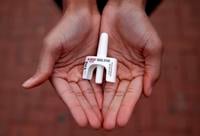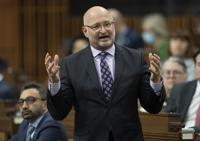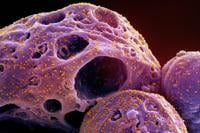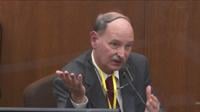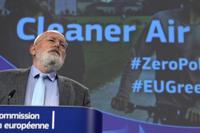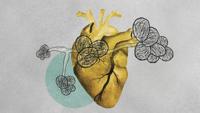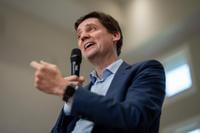Ever since Anthony Bridges found out he had prostate cancer six years ago, he hasn’t stopped talking about it. He told his Facebook friends immediately.
Now, the 68-year-old man from Georgia spends time working with others to encourage other men to talk to their doctor about getting screened.
Not everyone is as eager to share, for cultural or privacy reasons — or because they just don’t want to talk about it. kept his prostate cancer quiet, including from President Joe Biden. And more recently, , waited weeks before publicly disclosing her cancer.
Austin described his diagnosis as a “gut punch" and his instinct was to keep it private. In a video statement, Kate said it was a “huge shock” and that she and her husband, Prince William, had been trying to “manage this privately for the sake of our young family.”
Their reactions hardly surprised experts. Dr. Otis Brawley says he’s encountered men who don’t even want to talk about their prostate cancer with their own doctors.
Brawley, a professor of oncology and epidemiology at Johns Hopkins University, recalled a time decades ago when cancer simply wasn't spoken of, called the ”Big C" instead.
Public conversations around prostate cancer changed, he said, when former announced his diagnosis and publicly spoke of erectile dysfunction, a side effect of treatment.
For breast cancer, it was , who spoke openly about her surgery and treatment.
“That opened the floodgates. It was then OK to talk about cancer,” Brawley said.
In the U.S., death rates from cancer have been declining for decades, which is attributed to progress against lung cancer, screening and better treatments. Still, it remains the nation's No. 2 killer, behind heart disease, and cases are increasing as the population ages and grows.
Elaine Smith, who counsels patients at City of Hope Cancer Center Atlanta, said a patient's openness often depends on personality. Some don't want to be identified solely as a cancer patient.
“So many of my patients say people talk to them with a different tone of voice,” Smith said. "'They lean into me differently, they look at me with their eyes differently.'”
Sometimes people worry about how their coworkers will react when they have to miss work for appointments and treatments.
“In many cases, we may not acknowledge it, but .... that can sometimes have a role in how they are judged in their work performance,” said Dr. Bradley Carthon, of Emory University's Winship Cancer Institute.
Patients usually share with their family, experts said, but even that can be difficult.
Kate noted it had taken time to explain "everything to George, Charlotte and Louis in a way that is appropriate for them and to reassure them that I’m going to be OK.”
“She has the added challenges of having young children,” said Dr. Christina Annunziata, a cancer doctor at the Inova Schar Cancer Institute in Fairfax, Virginia. “As hard as it is to explain to friends and family, or even coworkers. It's even harder to explain to young children.”
The downside of keeping it private is that ”you're dealing with this all alone," Carthon said.
Dr. Paul Monk, who treats cancer patients at Ohio State University Wexner Medical Center, said it’s important for patients to bring along a family member or other support to appointments.
“I don’t think they hear everything I say," he said. "And so when you bring someone else to your doctor’s visit, that’s another set of ears and I think that’s critically important.”
Bridges’ wife, Phyllis, served in that role for him when he started treatment for advanced prostate cancer in 2018. He said he had no symptoms and had only gone for a checkup at her insistence.
Bridges felt called to share his story with others, especially with Black men, and is now part of a program called Project Elevation. Working through local churches, the program’s goal is to remove some of the stigma surrounding prostate cancer and provide information about screening.
“We have to change the mindset,” said the Albany, Georgia, resident. “We have to dispel the fear.”
___
The Associated Press Health and Science Department receives support from the Robert Wood Johnson Foundation. The AP is solely responsible for all content.






